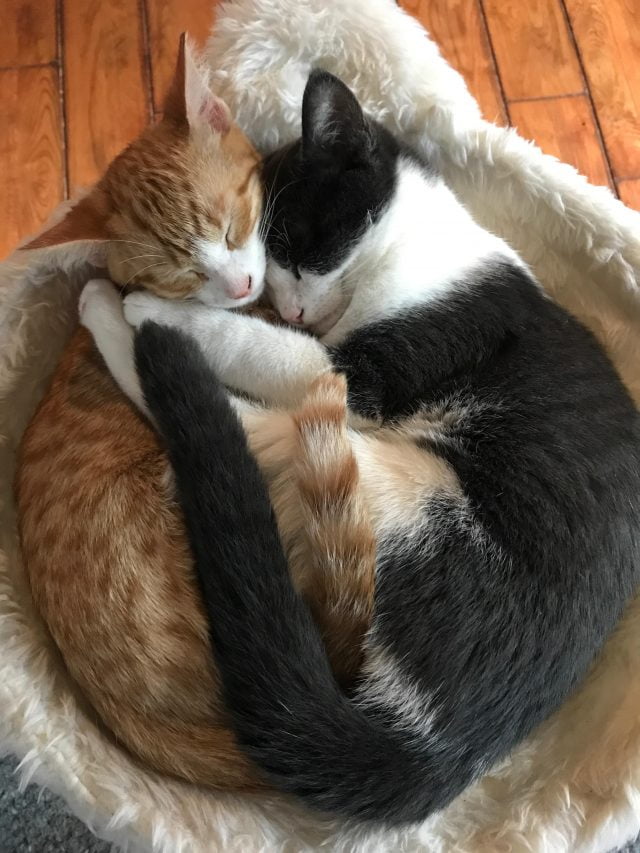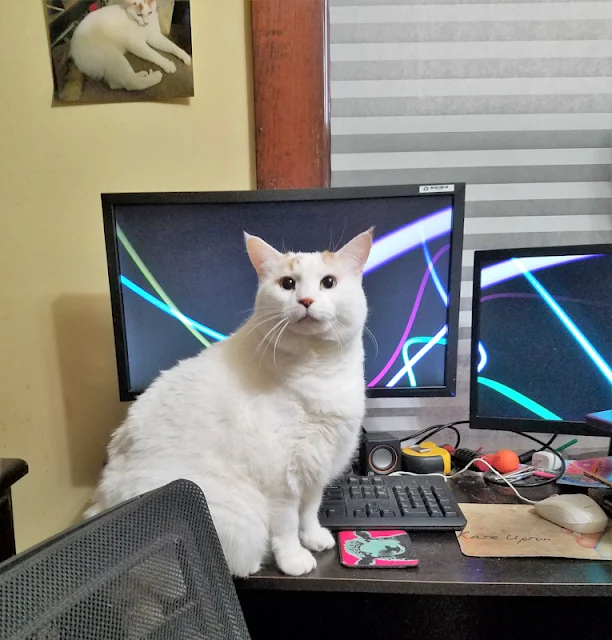How do you go about choosing a second cat to get along with your resident cat? Perhaps the first question is why you want to do it? I think you need to explore that and make sure that you are doing the right thing. You may want to introduce a new cat because you feel guilty that your resident cat is left alone too often. Maybe there is a different solution to that problem such as working from home more often! That's the current trend and employers are having difficulty getting employees back to work in the office! Introducing a new cat is problematic as they say.
 |
| Utopia. If you achieve this you've hit the jackpot. Image in the public domain. |
But if you are fixed on having two cats, how do you choose a cat which gets along with the other? And I am drawn to that question because in the newspaper today there is an interesting article which kind of answers the question. The title to the article in The Times today is, "For animal magnetism, opposites don't attract".
Similarities work best
Tanya Horowitz of the University of Colorado Boulder researched 80,000 British couples and they found that they got along better when they were similar in their characteristics, personalities and backgrounds. In short, similar individuals couple up.
"The characteristics most likely to be shared included political and religious attitudes, education levels and certain measures of IQ".
Cats - energy levels
That's talking about people and this article is about cats so there will be different ways of matching up but the underlying conclusion is that a similar character is best.
And this takes me nicely to Jackson Galaxy, the well-known American cat behaviourist. He has a section in his book Total Cat Mojo entitled "Choosing That New Cat".
He opens the section by saying, "In my opinion, the main criteria to factor in to matchmaking is to match cats by energy level. Even the cat's history should have less of an impact on your decision. I'd say that the first thing to do before even going to the shelter is to think about what personality type best complements your cat's".
He has decided that cats should be matched on their energy levels. In other words, it should be at a similar level which reinforces what I stated above regarding the Colorado study.
And he goes on to state that, "If you have a shy cat, you don't want that Dennis the Menace because he'll fray her nerves by trying to engage constantly.".
And finally, he concludes with this, "In general, you should try to complement rather than bring home a carbon copy."
I think that his words support what the scientists say about people being complimentary in a stable relationship. A similarity is going to be more successful than opposites. The old adage of opposites attract is incorrect.
Jackson doesn't think that the gender of the cat is particularly relevant in terms of matchmaking. One reason for this is that domestic cats are spayed and neutered. They are neutered individuals. This takes away some of their gender differences.
On the energy level topic, Jackson Galaxy says that it is not a good idea to introduce a kitten to a 12-year-old female cat in the expectation that the female adult cat will mother the kitten. He believes that the energy differences are too big.
Finally, it might be useful to quickly touch on what is often referred to as "expectation management". This is a reference to what the human caregiver expects of the relationship between her two cats when they first encounter each other. It would be a very rare situation where they both get along really well instantly and snuggle up to each other. However, it does happen and it's wonderful to see. And sometimes it happens between dogs and cats. There is this instant connection; it's chemistry on a feline and canine level.
But normally you will do well if a new cat and the resident cats tolerate each other initially and then learn to get along and even become friendly with each other. To enhance that prospect, it might be useful to follow Jackson's advice and think about similarities but not carbon copies.





.jpg)
















